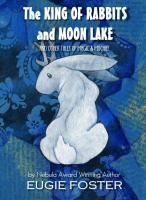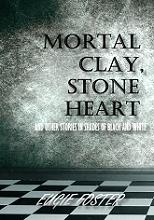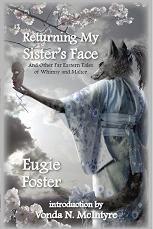Guidelines:
Step 1:
– Make a post (public, friendslocked, filtered…whatever you’re comfortable with) to your LJ. The post should contain your list of 10 holiday wishes. The wishes can be anything at all, from simple and fandom-related (“I’d love a Snape/Hermione icon that’s just for me”) to medium (“I wish for _____ on DVD”) to really big (“All I want for Christmas is a new car/computer/house/TV.”) The important thing is, make sure these wishes are things you really, truly want.
– If you wish for real life things (not fics or icons), make sure you include some sort of contact info in your post, whether it’s your address or just your email address where Santa (or one of his elves) could get in touch with you.
– Also, make sure you post some version of these guidelines in your LJ so that the holiday joy will spread.
Step two:
– Surf around your friendslist (or friendsfriends, or just random journals) to see who has posted their list. And now here’s the important part:
– If you see a wish you can grant, and it’s in your heart to do so, make someone’s wish come true. Sometimes someone’s trash is another’s treasure, and if you have a leather jacket you don’t want or a gift certificate you won’t use–or even know where you could get someone’s dream purebred Basset Hound for free–do it.
You needn’t spend money on these wishes unless you want to. The point isn’t to put people out, it’s to provide everyone a chance to be someone else’s holiday elf–to spread the joy. Gifts can be made anonymously or not–it’s your call.
There are no rules with this project, no guarantees, and no strings attached. Just…wish, and it might come true. Give, and you might receive. And you’ll have the joy of knowing you made someone’s holiday special.
1. Food, comfort, and/or best of all, a loving family for all the needy critters at the Atlanta Humane Society or any animal shelter near you. Adopt a fuzzy/scaled/feathered companion to love, or donate food, supplies, and toys to a shelter.
2. A donation to one of my favorite charities: The Humane Society, People for the Ethical Treatment of Animals, The American Society for the Prevention of Cruelty to Animals, The American Civil Liberties Union, or Amnesty International.
3. A poem written by you, especially for me.
4. A picture painted, drawn, or photoshopped by you, for me.
5. If you’re not a vegetarian, give it a try for a week. If you are one, make a vegetarian meal for one of your non-vegetarian friends.
6. Send me a little-known book or story you loved as a child.
7. Read something from my published bibliography and send me a review of it. (If I like the review, I might blurb it and post it on my website.)
8. Buy my chapbook: Ascendancy of Blood and give it to the vampire/goth/fairy tale lover on your holiday list.
9. An “Unfortunate Animal” from the Unfortunate Animal of the Month Club.
10. Stuff: any of the myriad material goods a la my Amazon.com wish list.









You know.. I think I have some prezzies in store for you 😉
I’ve been planning to adopt a cat from a local shelter anyway, and it’s nice to think of it as being someone’s Christmas list. You might like The Animal Rescue Site, not to mention its partner sites, if you’re not already familiar with them.
~ Someone browsing for LJ wishlists
Thanks for giving a homeless critter a loving new home, anonymous LJ browser!!
#8: Done.
#7: Coming sometime soon.
Thankee kindly, good sir . I look forward to receiving your review!
. I look forward to receiving your review!
So, while I wait for your chapbook to arrive…
I’ve been wondering a few things. Recently, frustrated by lack of productivity, I’ve been making a renewed effort to increase the volume of my writing and to study and sharpen my craft. I read Delaney and Pynchon and Gene Wolfe, and they leave me feeling something like awe, and something like despair, at the way they so subtly and perfectly manipulate words. You probably feel like that about Ellison, and I’ll admit he turns a nice phrase.
But I’ve recently begun to make an effort to acquire a variety of magazines and keep up with what’s going on, stuff like 3rd Alt and Asimov’s. Study the everyday (or everymonth) stories in there, write analysis, pay attention to the structure and wordspace alotted to particular scenes, expository dumping, etc. Read reviews, and thinking about starting to write them regularly, to clarify my thoughts on the stories, if nothing else.
(Of course, the more I’ve written the more I’ve realized the difference in the kind of learning you get by doing it, writing it out, seeing how different strategies work out with your style. But I’m making an increased effort just now to look at others’ work and think about how it compares to my own.)
So, I was wondering, when you write reviews for magazines (which I would try after doing a few just for me), how does that work? Do you have to write them immediately after a magazine issue or anthology comes out, or even have access to advanced review of the material to have your reviews out at the same time as the product? Or are they at a more leisurely pace? Is it normal to write them on something that catches your interest and send them out unsolicited to publishers whose guidelines suggest that they accept such things?
Do you think just sending things out unsolicited in general is a good or workable idea, or have you found that it is equally important to go to conventions and network with people in the business and attend writers’ groups and the like?
Do you write what you feel like and then worry about finding a place for it, or do you tend to write with markets in mind?
Thanks for reading this far; I didn’t mean to wander into your journal with so many random musings.
“ You probably feel like that about Ellison“
Harlan Ellison, Tanith Lee, Ray Bradbury . . . I’ve got a long list of writers I’m in awe of.
“recently begun to make an effort to acquire a variety of magazines“
Always a good idea for a writer to stay abreast of the current market if they want to break into it. And hey, if you’ve got a subscription to The Third Alternative you’ll probably get to see my novelette “Running on Two Legs” in the next issue before I do!
“when you write reviews for magazines . . . Do you have to write them immediately after a magazine issue or anthology comes out . . .?“
Pretty much, I write my reviews as soon as the stories come out. I’ve noticed that they often don’t get published for up to several weeks after I send them to my editor, but I do write them in a timely fashion.
“Is it normal to write them on something that catches your interest and send them out unsolicited“
I’m probably not the best person to ask these questions of. I’ve got an on-going, regular gig with Tangent. I’m currently assigned to review each week’s Sci-Fiction story. That means I don’t choose what I review; but it also means I don’t need to worry about finding a publisher for my reviewers.
“Do you think just sending things out unsolicited in general is a good or workable idea, or have you found that it is equally important to go to conventions and network“
Here, do you still mean reviews? As far as non-fiction goes, I don’t know much about submitting it, or the markets that look for it. My Tangent editor is someone I met at a writers workshop four years ago, and he is also in two of my writers groups. He sent an email out looking for new reviewers to one of the groups, and I lunged at the opportunity. The Cyberpunk article I wrote and submitted to IROSF was quasi-solicited. John Joseph Adams, the Assistant Editor of Fantasy & Science Fiction and one of their frequent Sub-Genre Spotlight article writers, saw a message board discussion Ellen Datlow and I were having about cyberpunk where we were debating aspects of that sub-genre stemming from a review I wrote of one of her Sci-Fiction stories. He emailed me suggesting that since I seemed knowledgeable that I write a spotlight article on cyberpunk and submit it to IROSF. He also said I could tell the editor he’d recommended me. With that sort of counsel and recommendation, of course I wrote and submitted the thing.
I do know that people frequently do well sending unsolicited submissions to various markets looking for articles, essays, reviews and the like, but my experience hasn’t really encompassed that sort of marketing yet.
As far as networking goes. I haven’t met any of the editors I’ve sold fiction to. No, wait, I take that back, I met one of the editors of Hitting the Skids in Pixeltown, but that was after I’d already sold them the story. I think networking is great, and I lament the fact that I don’t have the time or finances anymore to do the convention rounds like I used to, but it’s not necessary by a long stretch to get published. I do think having a good support base of writers is a good idea–which is why I’m in several writing groups, not to mention that a large percentage of my LJ friends are also writers and/or in my various writing groups. But writing by its nature is a solitary effort.
“Do you write what you feel like and then worry about finding a place for it, or do you tend to write with markets in mind?“
Is this regarding fiction or non-fiction? I think I answered your question above re: non-fiction. With regard to fiction, I definitely write what I want, and then try to find a good home for it after. Sometimes, especially when I’m writing children’s lit., I already have a market in mind as I’m writing it, but that’s only because I’ve done relatively well with my fiction for younger readers and am getting a reasonable feel for what a certain market is looking for.
Interesting…
My last two questions were about fiction as much as reviews and the like, sorry for the lack of clarity there.
Yeah, I noticed you had a story forthcoming in 3rd Alt, but I don’t have a subscription; I just went out to a couple of book stores and tried to get one copy each of all the SFFH magazines I could find, which ended up being 3rd Alt, Asimovs, and the Magazine of Science Fiction & Fantasy. I picked up a copy of Heavy Metal, too, just because. Most of the magazines I have read about on the internet, or in your bibliography for that matter, I haven’t been able to find in stores. I’m thinking of subscribing to Interzone, maybe, though I’d prefer to order a single issue (but I don’t think they have that option on the web page).
I know my writing has always been very solitary. I was getting a little concerned that it was too solitary, which is why I’ve gone on this magazine binge. And it’s actually made me feel better; the magines I’ve looked at have a wider variety of types of story than I had thought they would; reading a few submission guidelines had gotten me worried that a story would have to fit very snugly into their idea of what their genre was supposed to be to find a home, but it looks like things are fairly open. Larry Niven had a fantasy yarn about mermaids in Asimov’s, for instance.
This may be more of an analysis than a review; the story got me thinking about some things and I wanted to share. If you want to display this somewhere, feel free to cut out the parts with spoilers, change places where I say “your” to “Eugie Foster’s,” etc.
SPOILERS BELOW!
Your chapbook, Ascendancy of Blood, struck me as a light-hearted tale with some interesting underlying complexities. On the surface, a re-vamping of the Sleeping Beauty story with a sinister twist: Beauty as a blood drinking queen. This much was clear in the first scene, which had her defending her castle from a mob of church zealots with dark magic, calling up enchanted vines and thorns to slay the invaders.
When the plants turned on her, she staked herself through the heart to quiet them, leaving everyone and everything in the castle in a state of slumber and setting the stage for the second part of the story, and here is the first look at the subtext I found so interesting. The curse on the castle in this version of the tale is self-inflicted, and Beauty’s thoughts are narrated sufficiently to reveal that she took the final step of staking herself to save her subjects, sleeping and helpless, from the vines. She does drink the blood of her people, but she mentions her role as their protector on more than one occasion. Is this truly altruism in the vampire? Did she do the noble thing, sacrificing herself to save them?
The second part of the story opens hundreds of years later, on a prince preparing to enter Beauty’s castle. And here are some more hints about the subtext. The prince is a commoner, elected to be King, facing opposition from the old aristocracy who don’t approve. There is a struggle going on between feudalism and democracy, it seems.
Once the prince enters Beauty’s castle and realizes the nature of the blood enchantment on the vines, he wastes no time in cutting one and drinking the blood that pours out, taking its power into himself. This is especially telling in light of the conversation between Beauty and himself, once he finds her chamber and wakes her up. She says she rules by right of blood. A double entendra, perhaps, as she rules by the power of blood, literally, being a vampire, and also in the more usual euphamistic sense of birthright. She is hereditary royalty. In fact she is so steeped in the tradition of leadership by a hereditary upper class that she can’t believe the prince is a commoner, and then she assumes he woke her up so that she, a rightful queen, could rule in his place.
There is a comparison being made between the parasitic power of the vampire, and the system of leadership by a birthright nobility. What have the nobles done to deserve their positions of power? Nothing. They live off the labor of the commoners, consolidate their own strength, and offer nothing in return. Just as the vampire lives off the blood of her subjects, and rules by force of her strength, offering nothing in return. Except, perhaps, for that one classical justification for feudalism, the one commodity that the nobles are traditionally supposed to provide for their subjects: protection.
By the end of the story, the prince has put the stake back into Beauty’s heart. He has decided once and for all to close the door on the old ways of power by birthright, and to create a world where a leader is a leader because of merit. But he has seized the blood power of the old ways himself. He has become a vampire. In order to achieve power and change the system, he has become the very thing he was trying to eleminate. And unlike Beauty and the feudal noble class, he has no interconnected relationships of favors and obligations with his subjects going back for generations, he has no traditional contract to protect those he rules; he has only his own election to justify his power, and so he can justify any tyrrany by saying he was given the right by the people.
Random strangers…
Cassy actually pointed me to your LJ, and I am shamelessly stealing your wishlist meme.
And though I am a completely random stranger to you, I may be able to arrange to fullfill #’s 3, 4 and 7 for you.
Re: Random strangers…
Bless you unknown holiday elf! As for the meme-swiping, I shamelessly swiped it too . . .